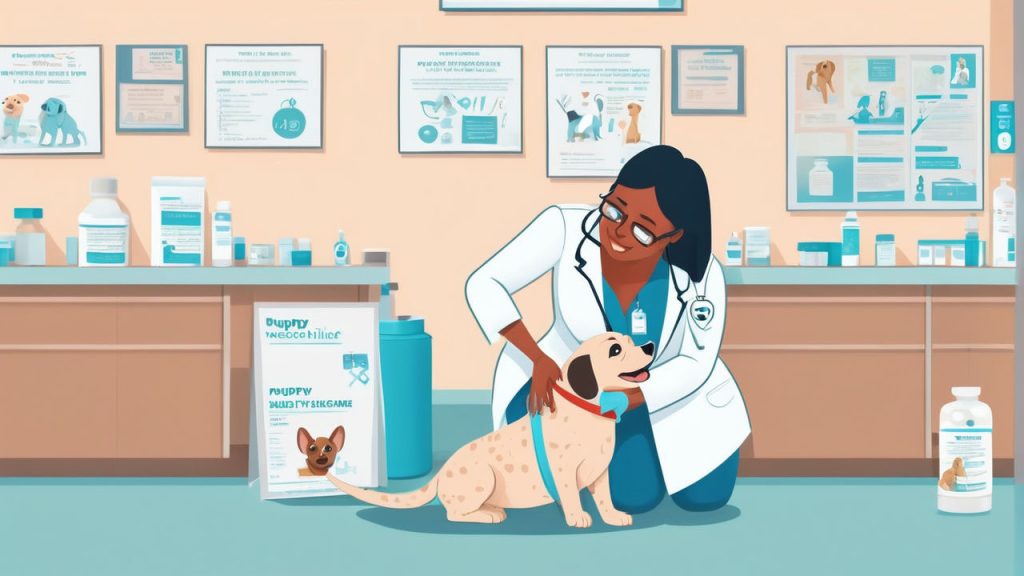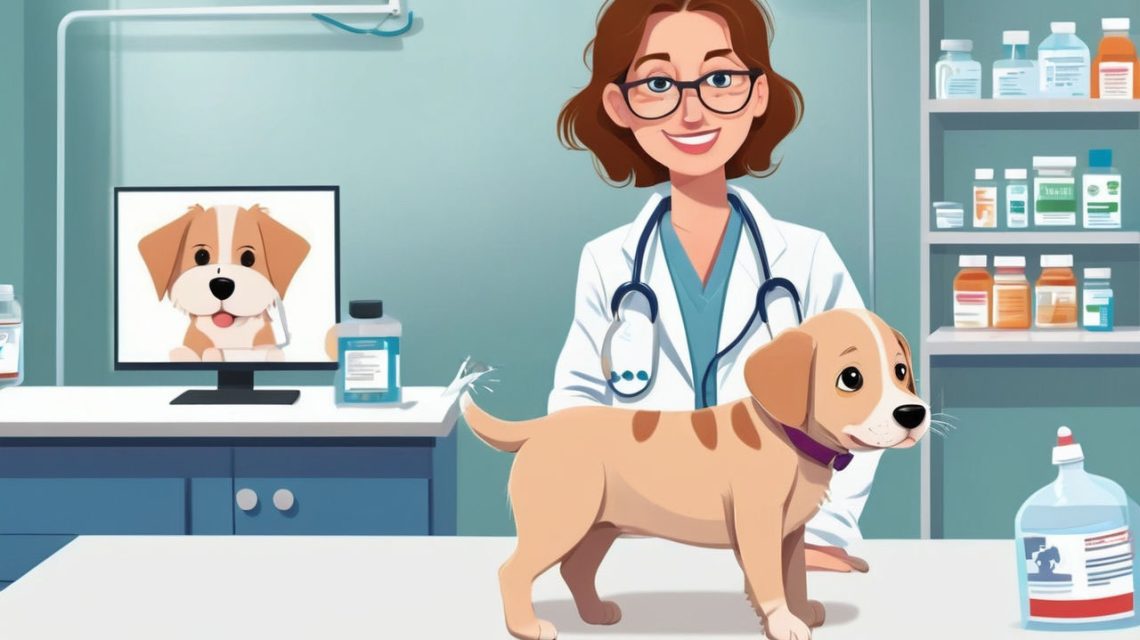Puppy Vaccine Clinics: Protect Your Pet with Essential Shots
Bringing a new puppy home is exciting, but keeping them healthy should be your top priority. One of the most important steps in ensuring your puppy’s well-being is getting them vaccinated. Vaccinations protect your puppy from serious, life-threatening diseases and help them build immunity as they grow. That’s where puppy vaccine clinics come in—a convenient and affordable way to give your puppy the protection they need from day one.
In this article, we’ll explore why vaccinations are essential, what to expect at a puppy vaccine clinic, and how to keep your puppy on track with their vaccination schedule.
Why Vaccines Are Essential for Puppies
Vaccines play a crucial role in safeguarding your puppy’s health by preventing dangerous diseases. Puppies have immature immune systems, making them more susceptible to infections. Vaccinations help prepare their immune system to fight off harmful viruses and bacteria before they become life-threatening.
1. Protection from Deadly Diseases
Without vaccinations, your puppy is at risk of contracting serious illnesses like distemper, parvovirus, and rabies. These diseases can be fatal, and even if your puppy survives, they may suffer from long-term health complications. Vaccines are the best way to prevent these illnesses and keep your puppy safe.
- Tip: The first few months of a puppy’s life are critical for developing immunity. Early vaccinations give them the best chance at a healthy life.
2. Preventing the Spread of Disease
Vaccinating your puppy doesn’t just protect them—it also helps stop the spread of contagious diseases to other animals. Unvaccinated pets can transmit diseases to other dogs, especially in public places like parks, doggy daycares, or boarding facilities. By ensuring your puppy is vaccinated, you’re playing an important role in the overall health of your community’s pets.
3. Legal Requirements
In many areas, certain vaccines, such as the rabies vaccine, are required by law. Keeping your puppy’s vaccinations up to date ensures that you comply with local regulations and avoid potential legal issues, especially when traveling or visiting public spaces.
What to Expect at a Puppy Vaccine Clinics
A puppy vaccine clinic provides essential vaccinations and care in a setting that’s typically more affordable and convenient than traditional vet visits. These clinics are often held at pet stores, shelters, or community centers, making it easier for pet owners to keep their pets’ health on track.
1. Initial Checkup
Before administering vaccines, the vet or technician will perform a quick health check on your puppy. This examination ensures that your puppy is healthy enough to receive the vaccines. They’ll check your puppy’s temperature, heartbeat, and overall physical condition.
- Tip: Bring any health records you have, such as those from the breeder or shelter, to help the vet understand your puppy’s vaccination history.
2. Administering Core Vaccines
At the clinic, your puppy will receive core vaccines, which protect against the most common and deadly diseases. These typically include:
- Distemper: Protects against a highly contagious virus that affects the respiratory, digestive, and nervous systems.
- Parvovirus: A vaccine that prevents a dangerous gastrointestinal disease that can be fatal if untreated.
- Adenovirus (hepatitis): Prevents viral hepatitis, which affects the liver and can lead to death.
- Rabies: Required by law in many places, this vaccine protects against rabies, a virus that can be transmitted to humans and other animals.
3. Booster Shots and Follow-Up
Puppies need booster shots to build up their immunity. These follow-up vaccinations are given every 3 to 4 weeks, usually until your puppy is around 16 weeks old. The vet will provide a schedule outlining when you need to return for the next round of vaccines, ensuring your puppy stays protected.

How to Prepare for Your Puppy’s First Vaccination
Preparing your puppy for their first vaccination visit will help reduce any stress and make the experience easier for both of you.
1. Socialize Your Puppy
Before the clinic visit, get your puppy comfortable with being handled. Let them get used to having their paws, ears, and mouth touched. This will make the health checkup and vaccination process smoother.
2. Bring Comfort Items
Puppy vaccine clinics can be busy, and the new environment may make your puppy nervous. Bring their favorite toy or blanket to help them feel secure and distracted while waiting. Treats can also be helpful for rewarding them after the shot.
3. Ask Questions
Don’t hesitate to ask the vet any questions you have about the vaccines, potential side effects, or aftercare. Knowing what to expect can ease any concerns and ensure you’re prepared for your puppy’s recovery after the vaccination.
Puppy Vaccination Schedule: What You Need to Know
A puppy vaccination schedule ensures that your puppy gets the right shots at the right time. Following this schedule is essential for building strong immunity.
1. 6–8 Weeks Old
At this stage, puppies usually receive their first round of core vaccines, which may include:
- Distemper
- Parvovirus
- Adenovirus
This is the first step in building their immune defenses.
2. 10–12 Weeks Old
The second round of vaccinations includes booster shots for distemper, parvovirus, and adenovirus. Some clinics may also offer additional vaccines based on your puppy’s risk factors, such as Bordetella, which protects against kennel cough.
3. 14–16 Weeks Old
The final core vaccine boosters are given, along with the rabies vaccine. By this stage, your puppy should have built a strong foundation of immunity.
- Tip: After the core vaccines are completed, your vet will recommend a yearly booster schedule to maintain your dog’s protection against these diseases.
Choosing the Right Puppy Vaccine Clinics
When selecting a puppy vaccine clinic, it’s important to consider a few key factors to ensure your puppy receives quality care.
1. Reputation and Reviews
Research local vaccine clinics in your area by reading reviews and asking other pet owners about their experiences. A well-reviewed clinic will have knowledgeable staff, clean facilities, and efficient service.
2. Licensed Veterinarians
Make sure the clinic employs licensed veterinarians or certified veterinary technicians to administer the vaccines. This ensures that your puppy is in capable hands, receiving care from professionals who can also address any questions or concerns you may have.
3. Affordability and Convenience
Puppy vaccine clinics are often more affordable than full veterinary visits, but it’s still important to compare prices. Some clinics offer low-cost packages that bundle vaccines together, saving you money on individual shots. Additionally, choose a clinic with convenient hours and locations to make follow-up visits easy to schedule.
Caring for Your Puppy After Vaccinations
After your puppy’s vaccinations, they might experience mild side effects, such as slight swelling at the injection site, tiredness, or a low fever. These side effects are normal and should pass within a day or two.
1. Monitor for Reactions
Watch your puppy closely for any unusual symptoms, such as vomiting, diarrhea, or difficulty breathing. Although rare, allergic reactions can occur. If you notice anything concerning, contact your vet immediately.
2. Provide Rest and Comfort
Your puppy may feel a little tired after their shots, so give them a quiet space to rest. Make sure they have access to water and their favorite toys, and avoid overly stimulating activities for the rest of the day.
FAQs About Puppy Vaccine Clinics
How much do puppy vaccine clinics cost?
- The cost varies by location, but most clinics offer affordable rates for core vaccinations. Expect to pay between $50 and $100 for a full round of core vaccines.
How many rounds of vaccines does my puppy need?
- Puppies typically need 3 to 4 rounds of vaccines, spaced 3 to 4 weeks apart, until they are 16 weeks old.
Are puppy vaccine clinics safe?
- Yes, as long as the clinic is staffed by licensed veterinarians or technicians. These clinics follow strict protocols to ensure your puppy’s safety.
Can I bring an older dog to a vaccine clinic?
- Many vaccine clinics offer services for dogs of all ages, including boosters for adult dogs. However, it’s best to call ahead to confirm.
What vaccines are required by law?
- In most areas, the rabies vaccine is required by law. Your vet can inform you of the specific requirements in your region.


